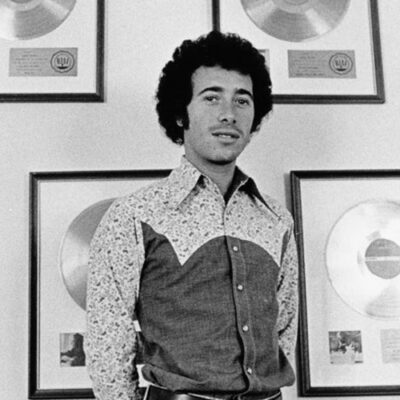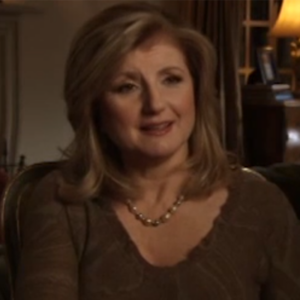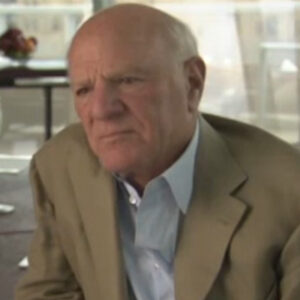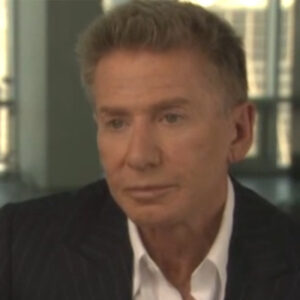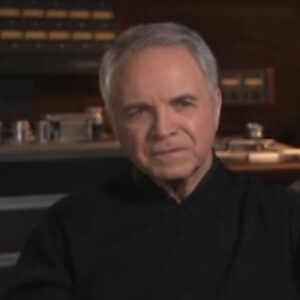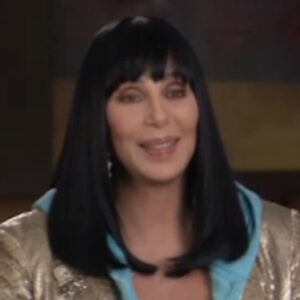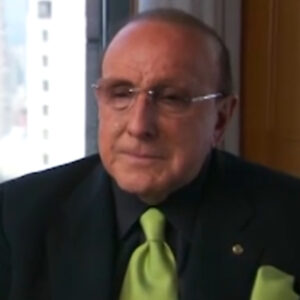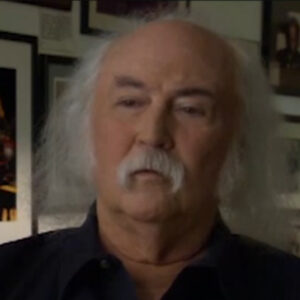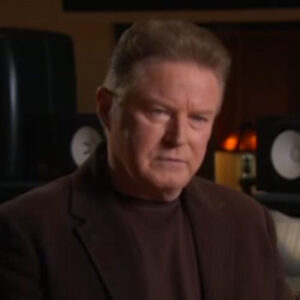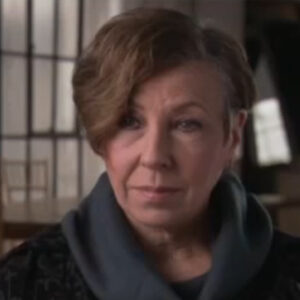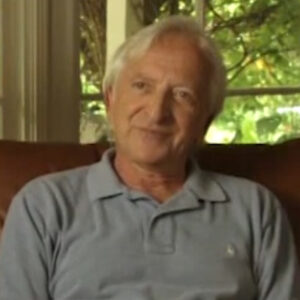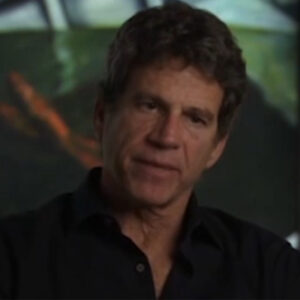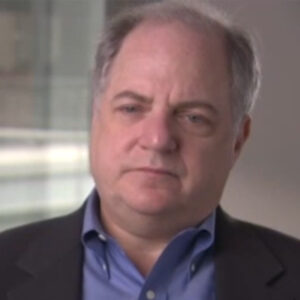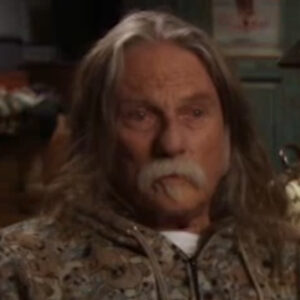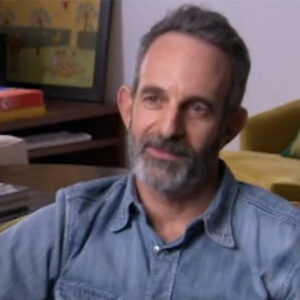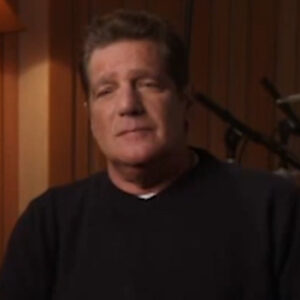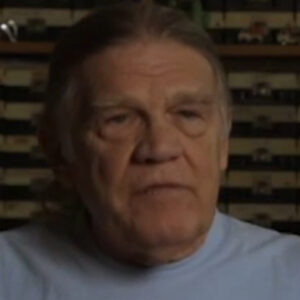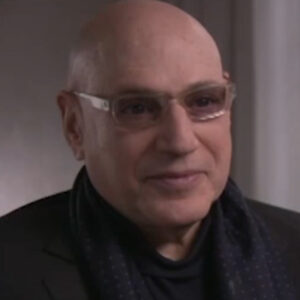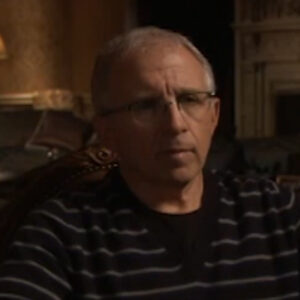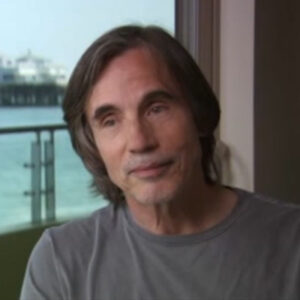Speaker When did you first meet David?
Speaker I think I first met David at JFK Airport.
Speaker He was returning home from a trip with Barry Diller, who I worked for at the time. I was Barry’s system. I was 23 years old and they were coming back on an international flight from someplace. And, you know, Barry had asked me to sort of take care of business. You know, and those days I was pretty good, pretty resourceful at that stuff.
Speaker And so, you know, kind of got them off the plane and cleared customs. I don’t think their feet actually touched ground. I was kind of it. I think David was sort of like, well, how did that just happen here? I just had never happened before. So that is a story.
Speaker Barry, tell us a little bit about this very impressive young man who got us through that to deal with customs.
Speaker But was the good old days when at least that was possible? Did you become friends right away?
Speaker You know, I don’t think right away. I mean, you know, David was already a superstar and a legend and, you know, a little bit intimidating, but exciting.
Speaker So I just saw him in the proximity really of of Moore being best friends with Barry, the person I was working for. And it’s so a little bit of intersecting. David, you know, did with me what he’s done with so many people over the years, which is, you know, kind of befriended me, you know, and he’s the one that sort of reached out and and, you know, offered, you know, counseling, you know, a big brother, you know, friendship in a way that was amazing.
Speaker You then your career really took off and you went to Disney.
Speaker It was from Barry Diller. You went from, I don’t know everything about your you ended up at Disney. Right. And that was your sort of next professional connection. And you were both chasing after Paul Brickman, right? Yes. I’m trying to remember with Paul.
Speaker Possibly. So I do activist. Yes. No, no, I know, I know, Paul. Yes, but go on, tell the story and I’ll go. It’ll jar with, you know, an important story.
Speaker It’s only in that reveals Davis Cup competitive streak that you were all you.
Speaker You. David hasn’t. David. David Geffen has a competitive streak. Oh, my.
Speaker Oh, my.
Speaker What am I gonna do with you when you and I were interested in buying CBS Records? Did you recommend that David be a consultant on that and on that deal?
Speaker We didn’t know about.
Speaker Walt Disney train ran through. This is a little bigger than Walt.
Speaker So, you know, I don’t actually remember whether I, you know, anything I ever did, you know, you know, on the sort of the music side of stuff, you know, David was all right. So let’s do it now. Now that that’s clear. OK.
Speaker Fire away. I don’t know if that’s all that important either, I guess. Well, maybe you could just tell us.
Speaker Rush hour, it’s the commuter trains and that’s every every place there’s a crossing. You know, this is where that accident happened a couple of years, two years ago, where they literally just one couple streets up from here.
Speaker So how did David advise you when you you know, I.
Speaker I don’t think there’s been anyone in my career who has been more impactful, more invested, more a mentor than than David.
Speaker And, you know, it goes back to, you know, my earliest years at Paramount followed my years at Disney and continues to, you know, this morning at 6:00 a.m. every morning.
Speaker Well, I. I did for 30 some odd years, you know, less sentence.
Speaker Yeah, I, I, I think that for the better part of 30 some odd years, I would say at least three hundred and fifty five or sixty days out of the year. I’ve talked to David usually sometime between six and six forty in the morning. And then there are many other times in the course of the day. But that’s our kind of appointed time. And and I and I mean it for more than 30 years, we’ve we’ve we’ve had these conversations.
Speaker And one of the conversations I have no idea there about everything there, about everything in there, about it, you know, what’s going on in the world and there about people.
Speaker And they’re about friends and they’re about enemies. And they’re about love. And they’re about hate. And they’re about life.
Speaker And they’re about politics.
Speaker And they’re about jealousy and envy and anger and, you know, you know, success and joy and you know, everything. That’s what David. And there is no I have never met any person who has the ability to pry people open, as David does, to to engage in a real conversation with David is unlike anybody else in the world.
Speaker It’s a it’s a it’s a it’s a demanding and intense.
Speaker And ultimately, you know, I think, you know, rewarding and valuable experience is why I do it all the time.
Speaker But it’s it’s it’s some. You’ve had it. I you can’t not there’s nobody that has engaged with David. You you know what I’m saying. I don’t know if I always have the best words or I have the best words to explain it, but to engage in a conversation with David is unlike anyone else in the world.
Speaker And by the way, presidents will tell you that congressmen’s will tell you that mayors will tell you that movie stars will tell you that rock and roll stars will tell you that the David somehow or another can open you up and reach in and kind of touch things that no one else does with you in which you, you know, reveal and make yourself vulnerable and, you know, talk in a way that most people don’t in life. Most times we’re very guarded and we you know, we we put protective barriers up with whoever we’re in it.
Speaker And I would say the barriers, although I do think that comes from it, comes from David being a genius of human nature.
Speaker And I think he has seen so many facets of life, the good, the bad, the ugly side of it, and sort of knows even from his own experiences himself, you know, what the buttons are that you know, that we that operate us and that most often we either suppress or keep in denial is probably, you know, zillions of hours of him doing every conceivable, you know, Estin Ashram, all these every thing you can do to sort of, you know, kind of discover yourself.
Speaker He’s done them. And I think he from those experiences in his life, he actually, you know, just has this amazing instinct to to to reach inside of people very quick.
Speaker And and and nowhere are those vulnerabilities are and know where the in a good way. You know, I don’t mean that in a way of of, you know, there’s nothing predatory about it can be predatory. But that’s not that’s not what it’s about.
Speaker Yes. Very. And then know you you did you know, David, before he started this five day week analysis was did you know it before David did afford it and after Dallas’s day, a different person.
Speaker I’d like to think. I know. Most days I don’t know. They know all David’s. But I think I know most if it’s.
Speaker And yeah, I mean, I’ve watched him, you know, over the years, you know, on these amazing roller coasters that that that, you know, that he’s had in terms of his own anxieties and his happiness and his depressions and, you know, things that just would send him off kilter in ways that broke my heart because I, you know, genuinely love him.
Speaker And, you know, he’s the older brother I always wanted to have and have.
Speaker So, you know, when he’s, you know, unhappy or sorrowful or hurt, you know, and and I I’ve I’ve always you know, he’s actually very sharing with that. And, you know, in a way, I’m I’m happy about with, you know, because I I can talk about those things with him. You know, years ago there’s this book written which, you know, for a year he obsessed over it and it never mattered and wouldn’t ever matter. But it matter to him.
Speaker What was so upsetting?
Speaker It was a lie and everything. I mean, he is a guy of enormous integrity and and and and someone who is, you know, very direct and honest and and and. And it was a dishonest account. And, you know, I you know, I am myself and I think other people who, you know, not only known, but also just professionally, we know these things don’t in the you know, kind of in the continuum of it all.
Speaker They actually don’t matter, you know. And and it doesn’t I mean, the book, it’s like it doesn’t matter. It’s not even a blip in his life.
Speaker Here we are today, X number of years later, the amount of suffering that he put himself through, you know, in that year was just terrible. And, you know, it was hard to get him out of it. So he feels things very, very deep. Yeah, you bet. Big time. That’s the great thing of him. He’s a wildly caring and sensitive and, you know, he has because he’s so strong and so forceful and so commanding, you know, you think he’s just, you know, the Rock of Gibraltar. But, you know, he is just like the rest of us, Silly Putty.
Speaker I’ve really been struck by this very much in everybody we’ve been talking to that there is this image of David. People do not know.
Speaker And then they say, yeah, there’s the myth and the myth is, you know, wild. I mean, you know, there’s different myths about different people over the years sometimes as myths or, you know, their exaggerations of things.
Speaker They’re they’re nuanced of them.
Speaker And this David’s is huge and not, you know, not necessarily all that accurate.
Speaker But he’s he’s a he’s a very interesting combination of somebody who’s very powerful, very wealthy.
Speaker It’s nothing to prove.
Speaker And yet he’s silly putty inside. That makes him to be very endearing. And I hope that that comes across people like you.
Speaker Well, I have to say, you know, I have I I’ve never had a better friend.
Speaker I’ve never had anybody be more honest with me in my whole life, literally.
Speaker I mean, other than my my Labradors, they’re honest.
Speaker You know, there is like a hundred. David’s is closed.
Speaker And I, I mean, you know, truly, he is honest with me.
Speaker He he and many times it’s very painful and hurtful to hear. But I always know it comes from a place of only wanting the best for me. And that honesty is why, you know, I value him above, you know, other than my wife or all else. There’s nobody close.
Speaker You gave him a big party, didn’t she?
Speaker He’s forty eight years old.
Speaker Tell us a little bit about that. Is there an. Is this because we have pictures? That was very important to him.
Speaker And Marianne Williamson was there and that was part of his pursuit of self-improvement and soul searching. Tell us a little bit about that relationship.
Speaker I don’t really know enough. I’m sorry. Yeah.
Speaker Well, you did. David give you career advice. Did he? We know that that Howard Ashman, for example, he could tell that story.
Speaker Yeah. As I say, David’s giving me advice every day of my life, including this morning. And I mean that. And, you know, and I didn’t like the advice I got this morning. It was in an email, but I took it and and and embraced it. I’ll tell you to go to cash now. Oh, yes. Not this morning. A year and a half ago, please. So many times it. Well, not enough. I’m a I’m a Bernie Madoff survivor of the extreme.
Speaker So, you know, not not enough.
Speaker But anyway, back to Howard Ashman. You know, one of the you know, my first day at work at the Walt Disney Company.
Speaker Nineteen, 1984, I went to Michael Eisner’s office and I had a meeting with him and a little white card with my to do list on it. And, you know, so here here’s the things I want to focus on and sort of, you know, said, OK, here’s the game plan. And you know anything on here? More or less. And a great meeting at the end of the meeting. I got up to leave the office and I was I was at the door just literally ready to walk out the door. And Michael said, Jeffrey.
Speaker One more thing.
Speaker I went, Yeah, what? What? He said, Well, could you come over here? I want to I want to want to show you something. And we walked over to the window. We looked out the window and he said to you, You see that building out there?
Speaker Yeah. He said, you know what they do there? I said, no, not really. Well, that’s where they make the animated movies. Oh, really? He said it’s your problem. So that was my introduction to animation. I’m a student of animation. Never had anything to do with it before.
Speaker I went to a few of them as a kid growing up and in the process of trying to sort of figure out how to make a nineteen eighties contemporary version of those great classic Disney movies. One of the things David kept saying to me is the music. The music is so important. And he was the one who said I’d been working with this amazing talent. Howard Ashman, you must go meet Howard Ashman. And I did. And Howard Ashman more than anybody you know, was I always refer to you know, Howard was like the seeing eye dog, you know, for for me. He he is the one who really, I think more than anyone else, understood the DNA of a great Disney musical. And and really was so integral to the reinvention or the Renaissance, if you will, of of animation at Disney. And so, you know, Little Mermaid, Beauty and the Beast, Aladdin, these were really you know, Howard was the kind of guiding force.
Speaker And David, a hundred percent, you know, understood. Saw what a great and amazing talent Howard was put us together.
Speaker Let’s move on to something that had the uncomfortable territory, but it eventually led to DreamWorks.
Speaker So we have to go. That’s not uncomfortable for me. Look at where did you feel you walked around here today? I live in paradise. So you drive with your is all right.
Speaker You better than all right. It’s the greatest thing that ever happened to me. You know, I drive through those gates each day and honestly, I’m in paradise. I can’t imagine being in a more beautiful, exciting, fun, challenging role.
Speaker You know, everything about it’s just the most rewarding thing that could have ever happened to me, so.
Speaker Well, then why did you just tell us the story of what happened and why you ended up leaving Disney and why DreamWorks?
Speaker Well, you know, you have to go interview Michael Eisner to find out his name. But, you know, I you know, I had a great relationship with Michael for the better part of almost 19 years.
Speaker I worked with him for part of it at Paramount, and I worked for him at Paramount and worked for him at Disney.
Speaker And what a fantastic partnership. I mean, Michael and I. Really genuinely got the best of one another for a really, really, really long time.
Speaker He made me better and I I put Michael, you know, if I put David at the top of the mentors in my life, you know, Barry Diller, Michael Eisner. So a couple of people back in New York from my political years.
Speaker They are these are the people that shaped and you know, and I think really guided my career and Michael Michaels right up there. And, you know, to have any relationship that works great for 18, 19 years, that’s a pretty extraordinary thing. And so I look at it now, you know, with 15 years back perspective on it, that’s pretty remarkable. As happens in other relationships, marriages, whatever came to an end, you know, we got to a point where I was no longer compatible for him.
Speaker And I say it that way because I didn’t outgrow him. Well, I don’t have to say he he I outgrew him. No, I don’t. Because I’d still be there today. It wasn’t comfortable for him anymore. Whatever those reasons are. And they’re very complex, to say the very least, in any of any fired me.
Speaker And and it was obviously within the world that we live in. It was a pretty ugly. And not one of the things that I look back on and say, Magin, I could have done that better.
Speaker But so Michael fires me.
Speaker I. Tried to figure out what am I gonna do with myself and I first person I talked to was, you know, David, you know, and I have to say, you know, I don’t think there’s anybody who believed in me, you know, professionally more than David. And.
Speaker And so I actually had this crazy idea of, you know, the thing that I love most about what I did at is he was making the animated movies.
Speaker And the only way that would be possible is actually to start a movie company.
Speaker And so in my mind, I tried to think of, well, what would be, you know, just the the silver bullet, you know, what could actually make that more than a dream, but actually a reality to it? And to me, the two greatest, most successful people in the entertainment business at that moment in time were Steven Spielberg and David Geffen. Steven Spielberg had just come off of making Jurassic Park and winning the Academy Award for Schindler’s List. In the same year, David Geffen had just sold his record company for the fortieth time for five billion dollars and was, in a way, as I knew, kind of figuring what’s next? And, you know, what am I going to do and is there challenge in this? And so here’s the most remarkable thing of all to me, you know, and things of like impossible. Go book the odds on this. It’s a trillion to one. David Geffen, arguably the most successful entrepreneur in the history of Hollywood in terms of creating assets and wealth for other people and for himself. Steven Spielberg, the most successful storyteller in the history of Hollywood, both at the very top of their game and I’ve just gotten fired.
Speaker So the notion of the three of us together, an equal partnership. You know, I went there. There are miracles. And anybody that doesn’t believe in them, I offer this up and you tell me that’s not a miracle.
Speaker Even the perfect storm is ending. Just on top of all that, we were all college dropouts.
Speaker Yeah.
Speaker I mean, if that’s not enough, you have literally the poster child, you know, for, you know, dropping out of college. Between the three of us. Steven, David and I, we don’t have a college degree.
Speaker To me, it’s astounding. Really helpful. If you just give a little background about that.
Speaker DreamWorks was the first studio. All right. Fifty years.
Speaker Sixty five. Yeah. So so, you know, the idea of starting a studio is kind of insane.
Speaker You know, the the odds of being able to put this together, you know, again. You know, they’re unfathomable. I mean, there hadn’t been a new studio started in sixty five years. And David being, you know, kind of the one you know, the way this works is David was the entrepreneur. And Steven was the dreamer. And I’m the builder. And at that moment in time, it’s the entrepreneur that ruled because David said he had me, said, you know, I put a business plan together for the company of all the things that we would do. And, you know, we needed a one point two billion dollars to run this company and invest until we would get to the place where it would start to turn a profit. And David said, well, that’s nice. Yes, that’s David’s. Some of these amazing expressions. My favorite David Geffen expression is, Jeffrey, there’s your plan and there’s God’s plan and your plan just doesn’t count. And once again, this was one of those places they said, OK, well, that’s nice plan, Jeffrey. What’s the disaster scenario on that? So we did a disaster scenario on it, which is if everything went wrong, it would take a billion six to before we would turn the corner and get to profitability. And he said, great, I am not doing this if we don’t raise two billion dollars in capital. You know, I just I want to know. And, you know, for Stephen to have that, you know, that sense of security and, you know, and frankly, wisdom, you know, was invaluable all the time. By the way, we were a billion eight invested before we started to turn a profit. So once again, the instincts were were perfect. We’ve gone with my numbers. We would be broke.
Speaker Let me make this. I mean, just the business based on the assumption that not a single movie or record would ever.
Speaker Yeah. Yeah. It would make any money for five years.
Speaker Yes. Yes. So my plan. That I put together was the sort of, you know, portfolio of you have hits, you have misses, some are really bad, some are really good, some are very big misses in this. And, you know, this a you know, a history of this. Steven Spielberg had already had a 25 year history of doing his it. David had a 25 year history of doing it. I had been doing this at that point for 20 years. And this is you know, there was a and and he said, that’s great. Just assume for the first five years, everything all three of us, though, you know, that we do fails.
Speaker That’s ridiculous. Well, it didn’t fail. We still needed the money.
Speaker He didn’t exactly jump quickly on the bandwagon. I mean, did you have a lot of meetings where he kept saying, I’m really not interested in this and I’ve just come to the meeting? But I really don’t want to do this.
Speaker That’s his way of saying, yes, tell me this. Yeah. I mean, you know, at the outset, you know, David, although very excited about the idea, kept saying, you don’t need me. I don’t want to do this, you know.
Speaker You know, you guys should do this. This is this would be great for you. I’ll help you. I’m around, you know. And he came to all the meetings and and, you know, kept saying, I don’t want to do it, which really was David’s way of saying, I can’t wait.
Speaker How did it how did it sort of unfold? I’ve got notes here.
Speaker Well, first of all, I mean, if.
Speaker You have very good instinct about that, but David had been a famous loner in the sense that it worked well with teams.
Speaker He just you know, you know, David, for the first 30 years of his career was very much a singular force, an entrepreneur. He he never thrived inside of organizations the few times that he went inside.
Speaker It was a bust for him and it didn’t work out for the people that did, whether was at Warners or Company. He just he’s not a corporate animal in any fashion, shape or form. And he was always at his best and his most successful when he was a hundred percent able to follow his own instincts. And that served him great. You know, I think there was just sort of this moment in his career where the notion of the Three Musketeers was suddenly so different. And. And I think that he had enough confidence and and admiration and respect for Stephen, obviously, in terms of what he could do and bring to this and and in knowing me as well as he did in terms of what I would do in this, that, you know what, it was different. And and to that degree, you know, he was looking for something different. That was my bet. My bet was David was ready for to make a real right turn and do something completely unique and different.
Speaker Tell me that the night you were all invited to the White House for its Yalcin dinner and you were going to seal the deal that night. What happened with David Hay Adams? That’s a great story.
Speaker Well, you know, we had a very, very quickly after I had left Disney or actually was very quickly after I was fired. I was actually still just working out the last four weeks or six weeks. We had had two meetings. The three of us together here in Los Angeles in which you sort of talked about the blue sky notion of starting DreamWorks and, you know, great conversation. You know, I’m out there with my little yellow pad of the things, the pluses and minuses. And, you know, I think all of us getting very, very excited about it. And and we had so many things to discuss, so many ideas, so many unanswered questions. And the most frustrating thing was we were running short on time. I mean, literally, physically, logistically time that we could get the three of us in the room. And we realize that the next time the three of us were going to be together is that we had separately each been invited to come back to the White House for a state dinner for Boris Yeltsin.
Speaker Gene.

